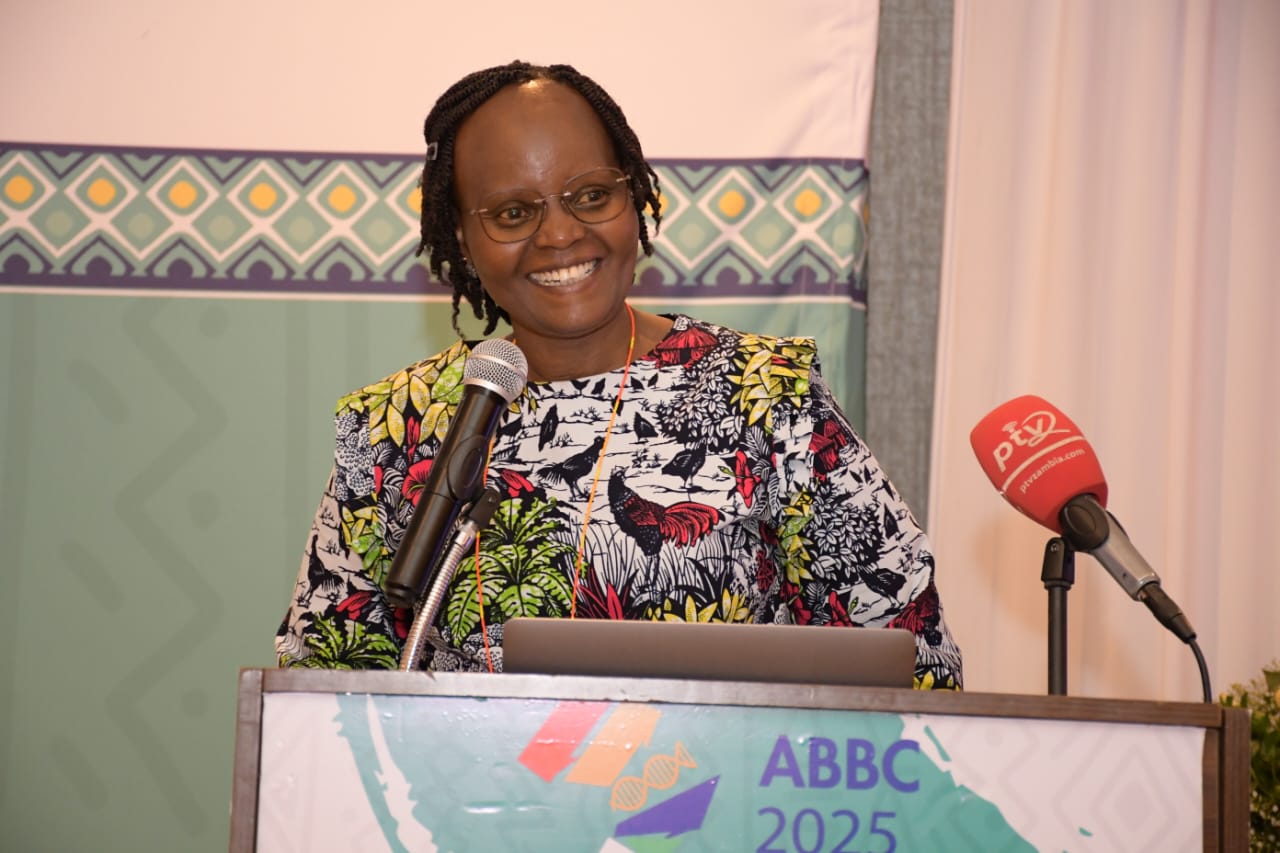 Dr. Margaret Karembu (MBS), Director of ISAAA-AfriCenter and founding chair of the Open Forum on Agricultural Biotechnology in Africa (OFAB – Kenya Chapter). Photo By Andrew Mbuva
Dr. Margaret Karembu (MBS), Director of ISAAA-AfriCenter and founding chair of the Open Forum on Agricultural Biotechnology in Africa (OFAB – Kenya Chapter). Photo By Andrew Mbuva
By Andrew Mbuva
Agricultural biotechnology holds immense promise for addressing Africa’s persistent food insecurity, yet its adoption continues to face crippling delays—largely fueled by misinformation, disinformation, and populist politics.
Speaking during a recent journalists’ webinar, Dr. Margaret Karembu (MBS), Director of ISAAA-AfriCenter and founding chair of the Open Forum on Agricultural Biotechnology in Africa (OFAB – Kenya Chapter), decried the continued spread of myths and unverified claims about genetically modified (GM) crops, warning that such narratives are costing Africa billions in lost opportunities.
“Biotechnology is not a replacement for traditional agriculture—it is simply a set of tools to complement what farmers already know,” Dr. Karembu stressed.
She noted that while crops such as Bt cotton, GM cassava, and Bt maize have undergone rigorous scientific testing and regulatory scrutiny, misinformation continues to dominate public debate, overshadowing facts.
Statistics presented during the forum painted a stark picture. Bt maize, which could have been commercialized in Kenya as early as 2019, has faced repeated delays due to political interference and misinformation campaigns.
The result: an estimated Kshs. 8.4 billion lost between 2019 and 2024, with farmers denied access to varieties that could have boosted yields by up to 194,000 tons in a single year—equivalent to 25% of Kenya’s annual maize imports.
Similarly, the rollout of Bt cotton was delayed for five years, costing the country an estimated Kshs. 150 million and denying farmers 650 tons of local cotton production by 2023. Upcoming innovations, such as genetically modified potatoes, also risk suffering the same fate if public misinformation continues unchecked.
“Forty percent of Kenyan media coverage on GMOs has been found to contain unchallenged misinformation,” Dr. Karembu revealed, attributing the confusion to sensationalism, inadequate extension support for farmers, and a proliferation of court cases driven by political populism rather than science.
Global evidence, however, paints a different picture. More than 70 countries currently grow, import, or consume biotech crops, with over 28 years of safe cultivation history across 202 million hectares worldwide. More than 3,000 independent scientific studies and over 4,400 regulatory approvals globally affirm the safety of GM crops for humans, animals, and the environment.
“The science is solid and the safety consensus is clear,” Dr. Karembu said. “What Africa needs is responsible, evidence-based regulation and open engagement with the media and the public to demystify biotechnology.”
To bridge the information gap, ISAAA and partners have launched the Africa Science Dialogue platform, a space where journalists, scientists, and the public can access credible, verifiable, and timely information on biotechnology and related innovations.
Dr. Karembu concluded by calling on the media to rise above sensationalism and help connect science to society. “We cannot allow misinformation to keep farmers in poverty while the rest of the world moves forward with innovations that are transforming agriculture,” she said.